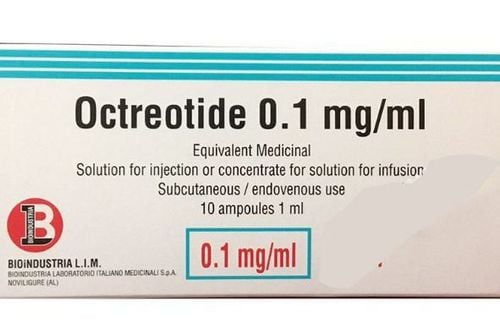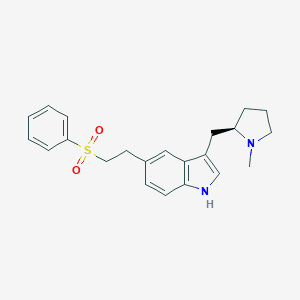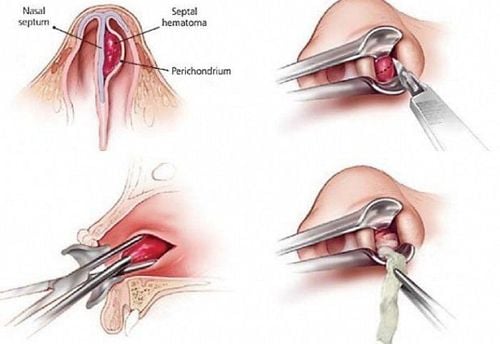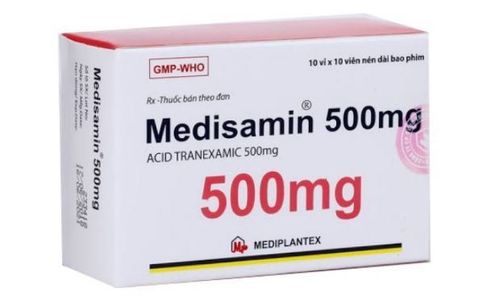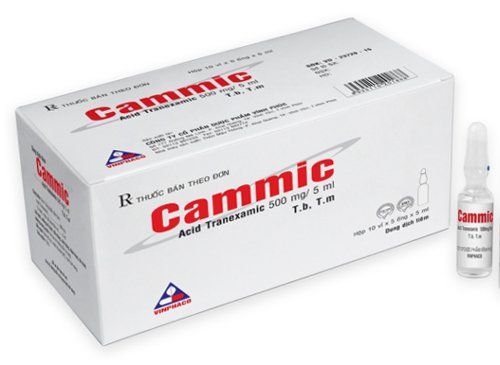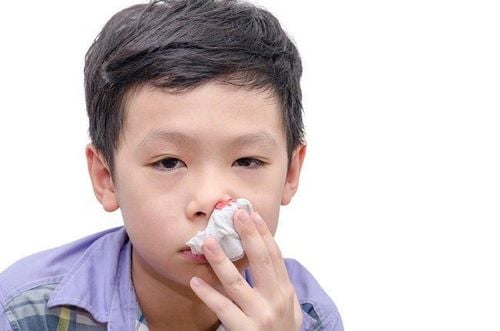This is an automatically translated article.
Article by Pharmacist, Master Nguyen Hoang Phuong Khanh - Clinical Pharmacist - Faculty of Pharmacy - Vinmec Central Park International General Hospital
Nosebleeds, also known as nosebleeds, are bleeding in the nasal passages caused by damage to the lining of the nose. So in this case, how should we handle it?
Most nosebleeds will stop bleeding on their own. However, if hemostasis is not possible, you can refer to the following treatment:
1. How to temporarily treat nosebleeds
You should sit with your body facing forward to avoid aspiration of blood and clamp your hands on both sides of your nose for 10-15 minutes. In case the blood is still bleeding, oxymetazoline can be sprayed on the side of the bleeding nose.
Accordingly, you can also use cold compresses outside the nose to help constrict blood vessels. However, do not use cloth, tampon for a long time on the bleeding area because it will cause bleeding again when removed.
In case of bleeding for more than 30 minutes without stopping, bleeding due to trauma, you need to go to the Emergency Department for timely treatment to avoid dangerous complications.
2. Some issues to keep in mind when having a nosebleed
Nosebleeds may occur more often if you have high blood pressure, which requires regular medication to control blood pressure.
In case you are taking anticoagulants or antiplatelet drugs, nosebleeds are not a reason to stop the medication. If you have frequent nosebleeds or do not stop bleeding within 30 minutes, you should go to the hospital to have your doctor check your medication, dose, and blood clotting tests (for example, check your blood pressure). INR while taking warfarin or acenocoumarol).
In addition, you need to be careful to list any recent medications because some drugs can affect the concentration or increase the risk of bleeding of anticoagulants.

Cách xử lý khi chảy máu cam
3. Ways to help prevent nosebleeds
Avoid snorting too hard. In case of a dry environment, it is recommended to spray the nose with physiological saline to moisten the nose. Besides, you also need to quit smoking because tobacco dries and irritates the lining of the nose.
Some medications including: dietary supplements, over-the-counter drugs can interact with anticoagulants that increase the risk of bleeding for example: NSAIDs, ginkgo - ginkgo, garlic, etc. long, you should inform your doctor, pharmacist for detailed instructions.
Follow Vinmec International General Hospital website to get more health, nutrition and beauty information to protect the health of yourself and your loved ones in your family.
Please dial HOTLINE for more information or register for an appointment HERE. Download MyVinmec app to make appointments faster and to manage your bookings easily.
References:
Pharmacist's letter 2021 - Managing Nosebleeds Pharmacist's letter 2021 - Give Advice on How to Treat and Prevent Nosebleeds




